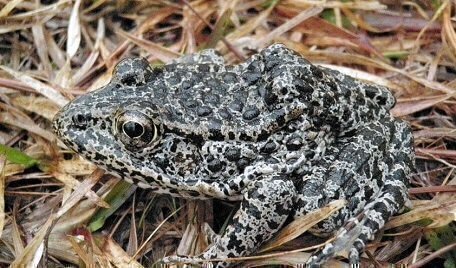Without comment, the Supreme Court decided on Monday to hear one of two cases in a dispute over land in Louisiana dedicated to protecting a frog species that doesn’t live there.
 Two cases were in front of the Justices on Friday in private conference about the endangered frogs from Mississippi that could return to Louisiana: Weyerhaeuser v. U.S. Fish and Wildlife Service and Markle v. U.S. Fish and Wildlife Service.
Two cases were in front of the Justices on Friday in private conference about the endangered frogs from Mississippi that could return to Louisiana: Weyerhaeuser v. U.S. Fish and Wildlife Service and Markle v. U.S. Fish and Wildlife Service.
The Court accepted the Weyerhaeuser case for arguments late this Spring. Weyerhaeuser’s lawyers want to the Court to settle two questions. First, does the Endangered Species Act prohibit designation of private land as unoccupied critical habitat that is neither habitat nor essential to species conservation? And second, “whether an agency decision not to exclude an area from critical habitat because of the economic impact of designation is subject to judicial review?”
The Fish and Wildlife Service ordered a 1,500-acre tract of privately owned land protected as a potential breeding and living space for the frogs, which currently live in Mississippi and were once believed to live in the Louisiana tract in question in the 1960s. The tract’s owners want to develop the land and harvest its timber. (Formerly known as the Mississippi Gopher Frog, the amphibians also once hopped around Alabama.)
Weyerhaeuser and other parties claim the Fish and Wildlife Service designation could cost them $34 million in lost development value of the tract. Weyerhaeuser contests the Service’s ruling that the loss was proportionate to “biological” benefits of designation was an overreach of it legal powers.
A group of 17 states, led by Alabama, also supports the private land owners, who have the property interests in the case. The Trump administration has filed a brief supporting the Fish and Wildlife Service, which made its Gopher Frog decision during the Obama administration. Solicitor General Noel Francisco says that the Service had the latitude to make the frog-protection rule under a concept called Chevron deference, which allows government agencies to make reasonable interpretations of ambiguous laws or statutes.







